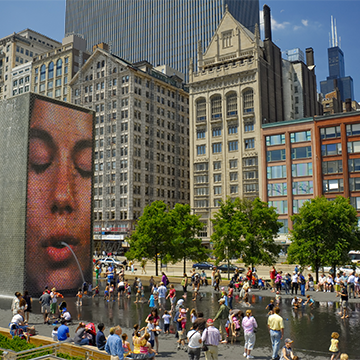Fellowships
The Harold and Janice Binstein Fellowships in Urology provide advanced sub-specialty urologic training following the completion of five or six years of urology residency. The Department of Urology offers fellowships in the following subspecialties:
Fellowships
AndrologyThis one-year program enhances trainees’ knowledge of medical and surgical management of male sexual, endocrine and reproductive health.
This one-year program enhances trainees’ knowledge of medical and surgical management of male sexual, endocrine and reproductive health.
Our goal is to train physicians who will be leaders in both andrology and urology. As a department, we strive to train physicians who are superior clinical care providers and who pursue thoughtful research initiatives to help advance men’s health for the growing and aging male population.
By program completion, fellows will have the expertise needed to provide comprehensive, contemporary subspecialty care and to organize a multidisciplinary approach to male sexual dysfunction, endocrine dysfunction and male infertility care.
The fellow will actively participate in clinics and operative procedures under the direction of director Robert Brannigan, MD, and co-director Nelson Bennett, MD, FACS.
They will also assist with a range of office-based procedures, including:
- Percutaneous epididymal sperm aspiration
- Testicular biopsy
- Testicular sperm extraction
- Transrectal ultrasound of the prostate
- Seminal vesicle aspiration
- Vasectomy
- Duplex doppler penile ultrasound
- Testosterone pellet insertion
- Intercavernosal injections
- Intralesional injections (collagenase and verapamil)
- Penile deformity assessment
- Biothesiometry
Throughout the year, fellows will master the following the core andrology cases with incrementally increasing autonomy:
- Micro-TESE
- Microsurgical vasectomy reversal
- Vasectomy
- Microsurgical varicocelectomy
- Transurethral resection of the ejaculatory ducts
- Orchiectomy
- Orchiopoexy
- Hydrocelectomy
- Spermatocelectomy
- Penile fracture repair
- Plaque incision/excision and grafting
- Penile prosthesis insertion
- Penile plication
- Priapism shunting
Fellows will attend the weekly Andrology Conference, departmental Urology Grand Rounds, and Pre-Op Conference. Additionally, they will participate in quarterly combined Andrology and Reproductive Endocrinology and Infertility (REI) multidisciplinary clinical conferences alongside both female and male reproductive specialists and will collaborate with reproductive endocrinologists in a clinical setting. Fellows are strongly encouraged to engage in research, with opportunities to present abstracts at national conferences and publish in high-impact journals.
We are committed to tailoring the fellowship experience to meet the specific professional and academic goals of each fellow. Our graduates have consistently demonstrated exceptional achievements both during and after their training. Notably, over two-thirds of our alumni currently hold academic appointments as andrology subspecialists within leading institutions, with many serving as recognized leaders in the field. Click here to view previous Northwestern Andrology Fellows.
How to Apply
All applicants must have successfully completed a United States or Canadian five- or six-year accredited program in urology.
To apply, send your application, CV , a personal statement, and a copy of your USMLE transcripts via email to Cecilia Goad.
Please request three letters of recommendation to be sent via email to Cecilia Goad by your references or their staff.
Applications accepted: Strating January 1st
Interviews conducted: February through April
For more information, contact Cecilia Goad at cecilia.goad@northwestern.edu.
Endourology – Robotic Surgery and Minimally Invasive Urologic OncologyThis one-year fellowship emphasizes advanced endourologic and laparoscopic procedures.
This one-year fellowship emphasizes advanced endourologic and laparoscopic procedures.
The endourology fellowship is a program with clinical, operative and research components. Previous fellows have gone on to successful careers in both academic and specialized private practice settings.
The fellow will be trained in endoscopic and minimally invasive surgery for endourological conditions, stone disease, kidney cancer and prostate cancer. A strong emphasis is placed on ureteroscopic and percutaneous management of stone disease, as well as robotic prostatectomy, laparoscopic and robotic assisted partial nephrectomy and robotic cystectomy. Fellows will also participate in laparoscopic and robotic reconstructive cases, including pyeloplasty and ureteral reimplantation. A small component of the clinical experience will consist of office-based procedures in the urology clinic.
Fellows work primarily with Kent Perry, Jr., MD.
How to Apply
All applicants must have successfully completed a five- or six-year accredited program in urology. Applicants must register for the match through the American Urological Association. For more information and to apply, visit the Endourological Society website or contact Cecilia Goad at cecilia.goad@northwestern.edu.
Endourology – Complex Stone Disease FellowshipThis one-year fellowship program enhances trainees’ knowledge of the surgical and medical management of complex stone disease.
This one-year fellowship program enhances trainees’ knowledge of the surgical and medical management of complex stone disease.
The goal of the fellowship is to train endourologists to deliver advanced care for patients with complex stone disease and benign prostatic hyperplasia (BPH). During the fellowship year, trainees will gain mastery in Holmium Laser Enucleation of the Prostate (HoLEP), a cutting-edge, minimally invasive procedure. Additionally, fellows will develop expertise in percutaneous access and nephrolithotomy for the management of complex stone disease.
Fellowship faculty member Amy Krambeck, MD , provides comprehensive training in the evaluation and medical management of stone disease. This includes extensive surgical experience with percutaneous renal access, advanced percutaneous nephrolithotomy techniques, advanced ureteroscopy, and HoLEP. Fellows will also participate in 20% research, working under the mentorship of faculty and utilizing the resources available at Northwestern University Feinberg School of Medicine.
Throughout the program, fellows will engage in a robust educational experience by joining the urology housestaff for weekly didactic conferences, including urology grand rounds, pre-operative planning meetings, and a dedicated fellowship-level endourology conference. By the completion of the program, fellows will have the skills and confidence to independently deliver expert-level endourological care to patients with complex stone disease and BPH.
How to Apply
All applicants must have successfully completed a five- or six-year accredited program in urology in North America. Applicants must be eligible for permanent physician licensure in the State of Illinois.
All applicants must register for the AUA Endourology Match, and complete the Endourological Society application.
To apply, email application materials listed below to Cecilia Goad.
- Endourological Society application
- CV
- Personal statement
- USMLE transcripts reflecting scores for Steps 1, 2 CS, 2 CK, and 3.
- Please request three letters of recommendation, and ask that your references email their letters to Cecilia Goad. Letters emailed by applicants will not be accepted.
Reconstructive UrologyThis is one-year program that provides advanced training in reconstructive urology.
This is one-year program that provides advanced training in reconstructive urology.
The ultimate goal of the fellowship is to train leaders in reconstructive urology through development of exceptional technical skills, critical analysis of complex clinical problems, mentorship, and scholarship.
The program focuses on urethral reconstruction, ureteral reconstruction, male urinary incontinence surgery, fistula repair (colovesical, vesicovaginal, rectourethral, and puboprostatic), appropriate utilization of pedicled flaps (omentum, rectus, gracilis), genital reconstruction (including skin grafting), and complex abdominopelvic urologic reconstruction.
As one of the highest volume robotic reconstructive centers in the world, there is a special emphasis on advanced robotic urologic reconstruction of the upper and lower urinary tracts. In particular, the fellow will gain extensive robotic experience in obtaining access in hostile abdomens, operating in reoperative and radiation damaged surgical fields, harvesting flaps, formation of intracorporal urinary diversions, and performing substitution urinary tract reconstruction with oral mucosa, rectal mucosa, and bowel.
The curriculum will include approximately 1 day per week for research under the guidance of fellowship faculty. There will be ample resources for conducting research, including mentorship in ongoing and new projects, access to numerous Northwestern and multi-institutional databases, and collaboration with research coordinators, statisticians, and medical illustrators. The fellow is expected to complete multiple research projects during fellowship.
After completing the fellowship, graduates should demonstrate the ability to:
- Perform complex reconstructive surgery with clear understanding of the risks and benefits of each procedure
- Understand key principles of reconstructive surgery, including biology of wound healing
- Critically analyze complex clinical scenarios and provide treatment plan based on sound reconstructive principles
- Provide collaborative care within a multidisciplinary management team
- Contribute significant research to field of reconstructive urology
- Build an advanced practice in reconstructive urology
Application Requirements:
- Completion of ACGME-accredited urology residency program
- Eligible for Illinois State Medical License
- Pass all 3 steps of USMLE
To apply, please submit the following documents to Cecilia Goad:
- CV
- Personal Statement
- 3 Letters of Recommendation
Application Timeline:
Applications Accepted: August 1, 2025 through October 5, 2025. Decision made in early November 2025.
Applications Due: October 14, 2025
Contact Us
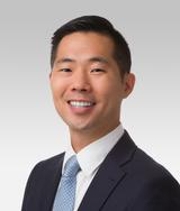
Assistant Professor
Director of Urologic Male Reconstruction and Robotic Reconstructive Surgery
Director of Genitourinary Reconstruction Surgery Fellowship
Department of Urology
Northwestern University Feinberg School of Medicine
Ziho.Lee@nm.org
Current Fellows
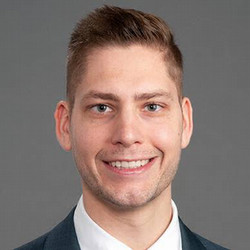
Nicholas Deebel, MD
Andrology Fellow
Medical School: Virginia Commonwealth University School of Medicine
Residency: Wake Forest University Baptist Medical Center
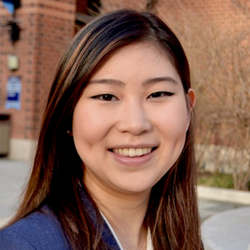
Jenny Guo, MD
Endourology - Complex Stone Disease Fellow
Medical School: Sidney Kimmel Medical College at Thomas Jefferson University
Residency: McGaw Medical Center of Northwestern University
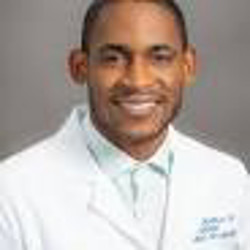
Diboro Kanabolo, MD
Reconstructive Urology Fellow
Medical School: University of Chicago Division of the Biological Sciences The Pritzker School of Medicine
Residency: University of Washington
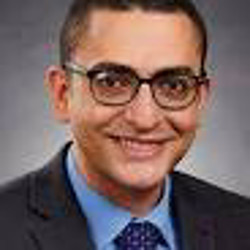
Pavly Youssef, MD
Endourology - Robotic Surgery and Minimally Invasive Urologic Oncology Fellow
Medical School: Rutgers New Jersey Medical School
Residency: Cooper Medical School of Rowan University
Why Northwestern?
Learn more about the benefits of training at a world-class academic medical center in a diverse and vibrant city of Chicago. Further program details, including the Department of Medicine housestaff manual and a sample training contract, are available on our McGaw Medical Center Graduate Education site.
